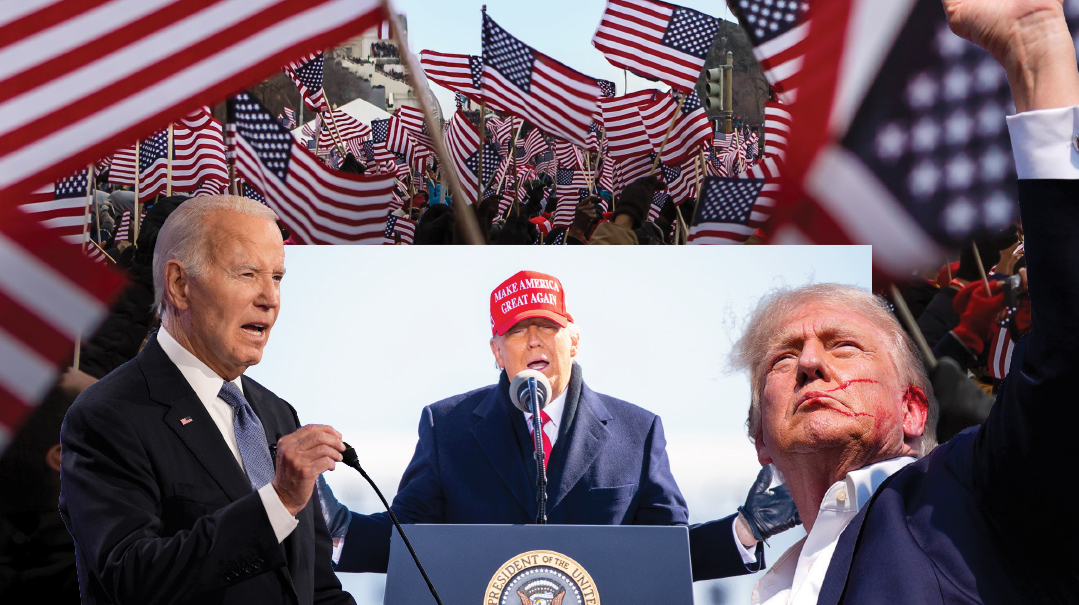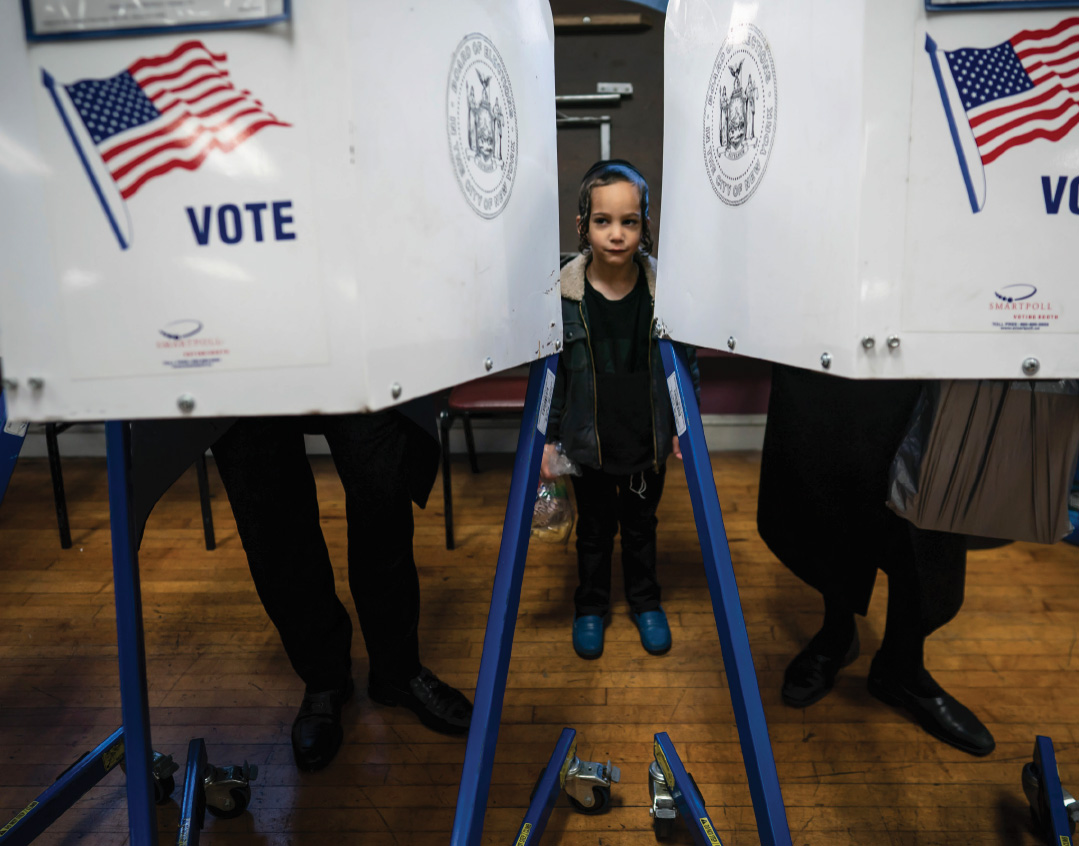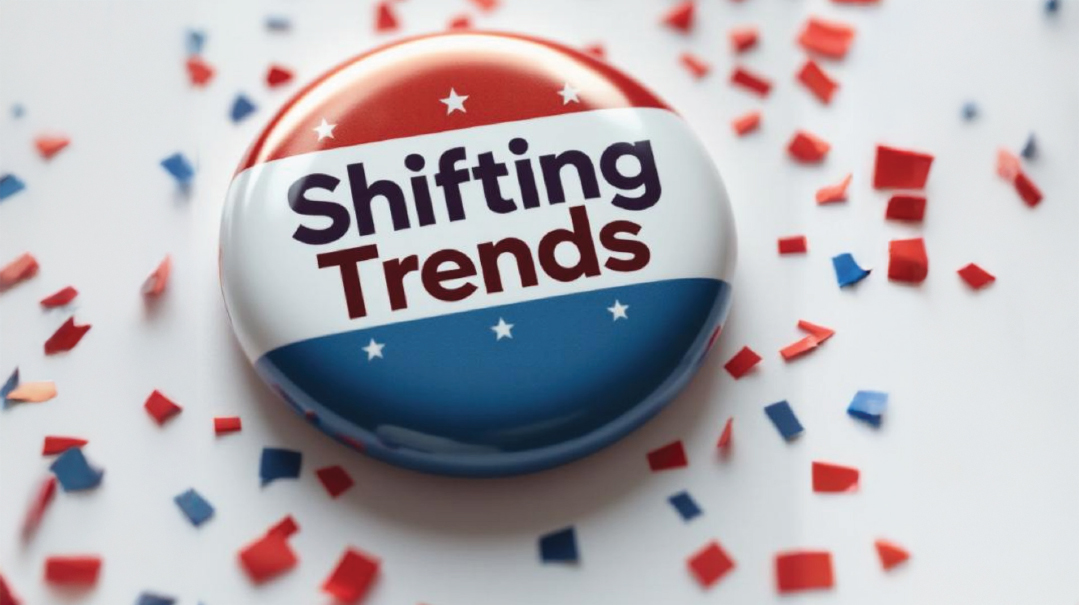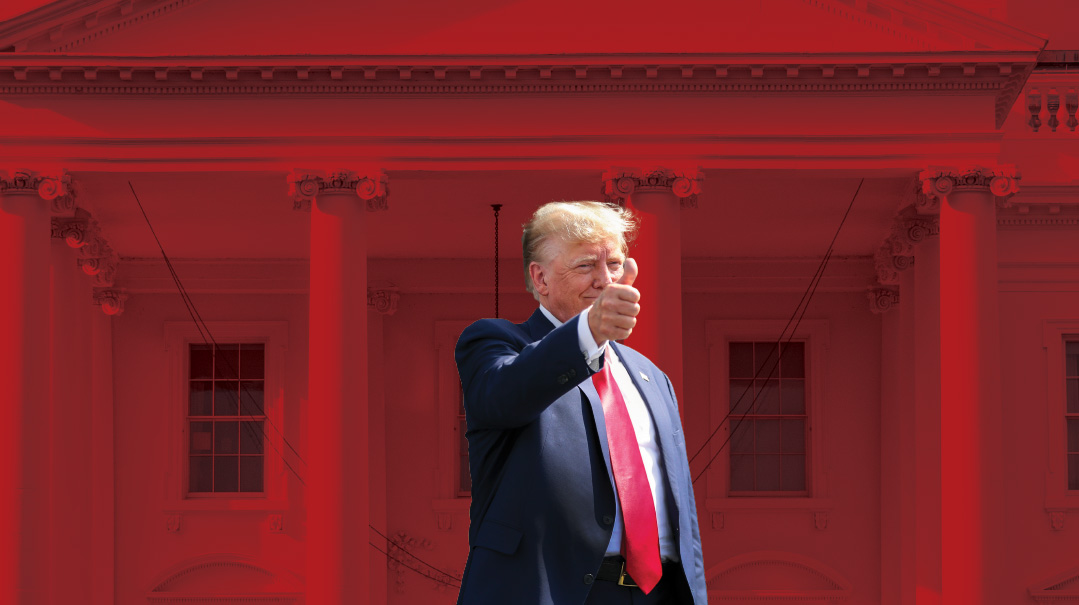Campaign for the Ages

The 2024 clash in 8 moments

Photos: AP Images
Many things about presidential campaigns are fairly predictable: Candidates make promises they likely won’t keep, politicians we already know elicit overblown enthusiasm, and certain slogans and sound bites last right up to Election Day.
But the 2024 presidential campaign? Anything but predictable! This race saw court cases, last-minute candidate swaps, and even two assassination attempts, with one missing by mere millimeters.
Recounting everything that’s happened in the campaign over the past two years (yes, it’s been an exhaustingly drawn-out campaign) would break our page count, so here we present the eight key moments of the 2024 presidential race.
1
Still a MAGA Party
Trump has effectively been in campaign mode since leaving the White House, and he was also the first Republican to formally announce his intent to run for the 2024 election. He did so on November 15, 2022, almost two full years ahead of the vote. (The norm used to be to announce a candidacy no more than a year and a half before the election.) In time, other candidates joined the fray, including entrepreneur Vivek Ramaswamy, who would become the party’s political dark horse; Florida governor Ron DeSantis; and former South Carolina governor and UN ambassador Nikki Haley.
Early polls forecast a Republican showdown between DeSantis and Trump, with many predicting that the Florida governor would seize the nomination. In December 2022, the Wall Street Journal reported that DeSantis led a head-to-head matchup, with 52% to Trump’s 38%, while USA Today placed the split at 56% to 33%.
True to form, Trump dismissed the polls, accusing traditional media of running a campaign against him, and declared that he would win the nomination in the end — a claim that would be vindicated. Ramaswamy and DeSantis exited the race following Trump’s decisive win in the Iowa caucuses, while Haley waged an unwinnable fight until March 6, 2024. After a series of resounding defeats in primaries nationwide (she won only D.C. and Vermont), she too left the field.
Trump’s sweeping victory confirmed that, even as certain Republican centrists and party elites quietly chafed at his dominance, and though many had counted him out, the MAGA movement had claimed firm ownership of the party.
Oops! We could not locate your form.







